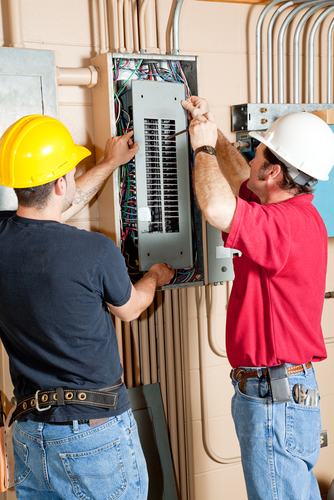Beware of callers claiming to be your utility company threatening to turn off services unless you pay immediately using a specific method of payment. While a utility company may call to remind you of a past due bill, it is most often a recorded message
that alerts you about a balance due. Consumers nationwide report that con artists are calling in an attempt to convince residents that they need to pay immediately to avoid shutoff. The required method of payment is a bit unusual. They are being asked to
wire funds or send via Western Union, PayPal, or by loading money onto a reloadable cash card and providing the card information to the caller. When customers pay using the methods requested, the scammer gets the funds and, unfortunately, it is next to impossible
to get the money back.

Other scams involve emails claiming your utilities will be shut off unless you click a link and enter your account information. Once your information is submitted to the schemers, they can use it to commit identity theft. Clicking on the link can lead you
to websites that install malware onto your computer, including viruses that can steal your information and ruin your computer.
In 2013,
local news reported that Southern California Edison (“SCE”) received thousands of complaints from consumers who were contacted by phone scammers. Hundreds fell for the scam and paid the crooks to avoid having their power
turned off. One businessman paid $4,000 and another $1,300 via MoneyGram. To add insult to injury, not only were they out of the money robbed by the scammers, but they still had to pay their utility bill. Don’t be a victim—check it out before you pay.
Business Consumer Alliance (“BCA”) offers the following advice to avoid being scammed:
- If you receive a call or email regarding your account, before you go any further, contact your provider immediately. Even if the caller sounds convincing, check with your local provider to verify that your account is indeed past due. Check your monthly
bill or statement for the customer service number.
- Never wire money to anyone calling and asking you to do so. This also goes for using prepaid or reloadable cards. Most legitimate businesses don’t demand that you use these methods of payment.
- Avoid clicking links that appear in unexpected emails or texts.
- If you are delinquent on your bill, contact the utility company to request an extension or payment plan to avoid having your service interrupted.
- Always ask anyone claiming to be a utility company employee for identification before allowing them into your home. Call the service office if you have any doubt as to their legitimacy.
- If you have been scammed,
file a complaint with BCA to warn others of your experience.
For more tips on
utility scams and how you can protect yourself visit the
SCE website.
About The Author:
Nicole Pitts is a Senior Business Analyst and Editor for Business Consumer Alliance. She has been with the organization for 12 years and specializes in report writing, business evaluation, and investigations. Nicole corresponds with businesses regarding
complaint trends and provides suggestions to help them alleviate problem areas that may cause concern. She also conducts advertisement reviews, reports on government enforcement actions, and assists government agencies in obtaining information. She enjoys
reading, movies, and spending time with her family. Nicole can be reached by email at npitts@businessconsumeralliance.org.